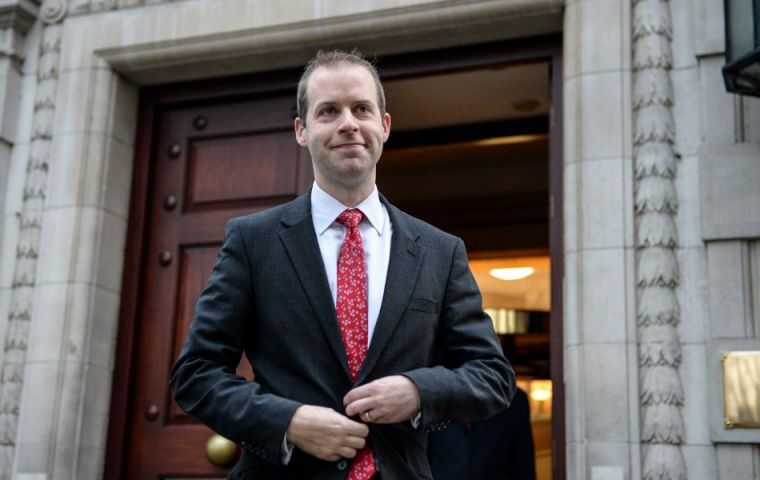MercoPress. South Atlantic News Agency
The City has “huge concern” over the Brexit political debate: “services sector forgotten”
 Shadow City minister Mr Reynolds said: “The big question is, what is the parliamentary Conservative Party willing to support?''
Shadow City minister Mr Reynolds said: “The big question is, what is the parliamentary Conservative Party willing to support?'' The City has “huge concern” over the Brexit political debate being dominated by tariffs and goods rather than the UK’s majority services sector, a shadow minister has said. Labor’s Jonathan Reynolds said that any deal which does not cover services “is clearly a very bad deal for the UK”, noting that there was a “fairly hard ball position being played by the EU”.
He argued the Prime Minister had “tried to fudge” the issue of a customs arrangement and it was not altogether clear whether she could carry her own MPs.
Shadow City minister Mr Reynolds, in an interview with the Press Association, said: “The big question is, what is the parliamentary Conservative Party willing to support?
“It’s absolutely clear that if you want a frictionless or as close to frictionless trade as possible you need some sort of customs agreement with the rest of the EU, it has to be a new one, you can’t opt into the existing situation, but you also can’t keep demanding a set of outcomes without any attempt to institutionally deliver them.”
He added: “The House of Commons is quite clearly getting to the point where it recognises a customs union is the best way forward. Clearly there’s a real risk to the Prime Minister of being brought down by her own side if she were to concede that case, so it feels like she’s tried to fudge it. It’s not altogether clear to me whether she can carry her own MPs.”
The MP for Stalybridge and Hyde said it “certainly is possible to foresee a deal that covers services, not least because there is a risk to financial stability”, but to “get that deal you really have to go about the negotiations in a different way to what the Government have done”.
He said the EU wanted to know whether Brexit was a rejection of political integration or a rejection of political and economic integration, adding that the “pretty tough” positions it was adopting were “causing a great deal of concern” in the City and different UK business sectors.
Transitional arrangements remained a key priority for the City, he said, but the issue of Ireland “appears nowhere near sorted”.
Mr Reynolds said: “There’s huge concern that most of the political debate covers tariffs and goods and doesn’t really reflect the fact that the majority of the British economy is services related. People knew straight away that passporting was gone, once we were leaving.
“Equivalence however is nowhere near sufficient, it doesn’t give you the legal certainty to conduct vast amounts of your business, so it’s got to be a model that is based on mutual regulatory recognition, a legal institutional basis to do that and at the minute we seem very far from that kind of deep and serious understanding.”




Top Comments
Disclaimer & comment rules-

Read all commentsThe question is why is this piece appearing in Mercopenguin, a British government propaganda organ supposedly devoted to America, South America and the “South Atlantic”?
Jun 08th, 2018 - 02:05 am 0Commenting for this story is now closed.
If you have a Facebook account, become a fan and comment on our Facebook Page!